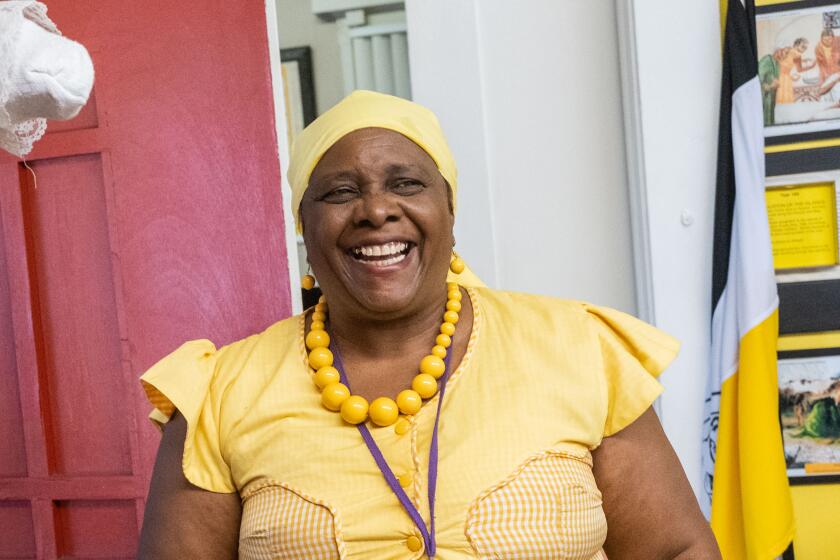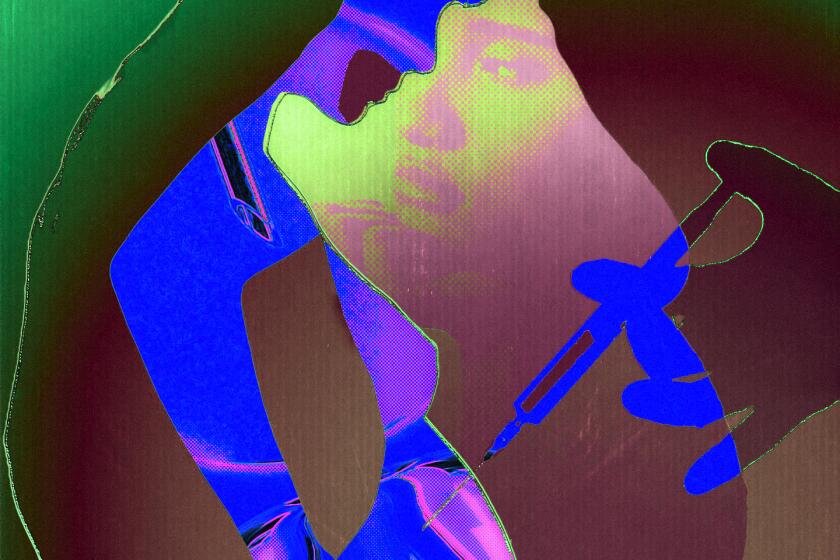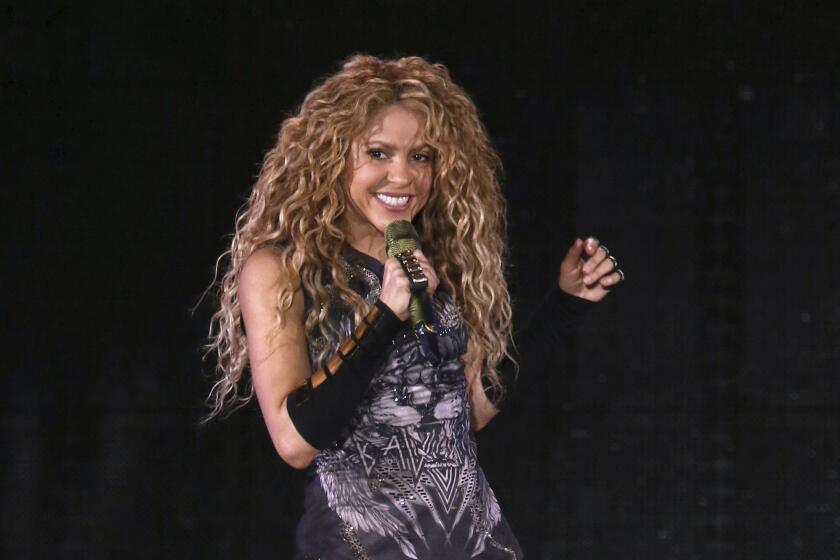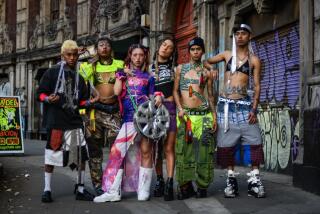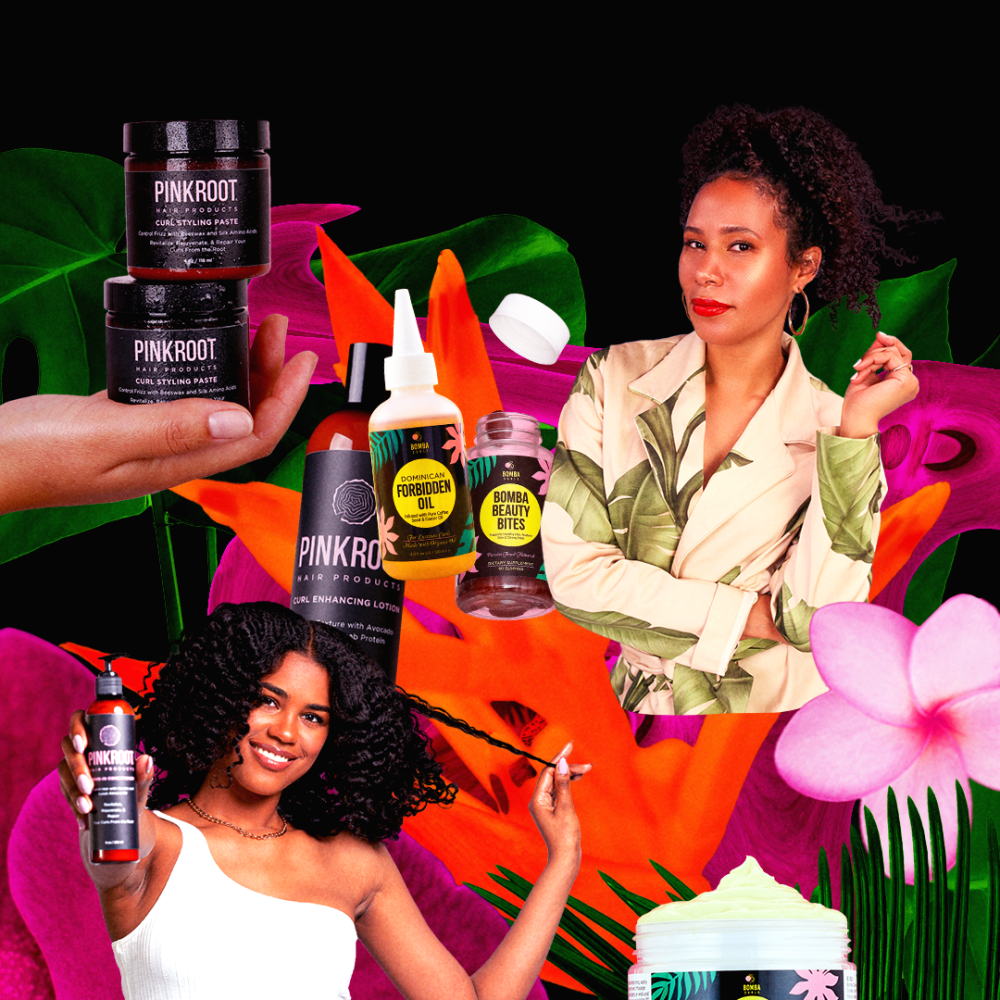
Historically, beauty standards have favored straight hair and stigmatized textured hair as being unprofessional or messy. But in many Black and brown communities, hair has a cultural significance with decades of history. A new wave of Afro-Latina entrepreneurs are embracing their natural hair and creating products that cater to curly and textured hair.
Bomba Curls founder and owner, Lulu Cordero, did not know what her natural curl pattern looked like for years. The Dominican native recalled weekly trips to the Dominican hair salon to get her hair done. Week after week she sat in the salon chair until her hair was straight and her curls were no longer visible.
“I got my first relaxer when I was 9 and it was just a part of my life every Saturday until I was like 17, 18 years old,” Cordero said. “I didn’t really know what my natural texture looked like until I made the decision to go natural.”
Latinidad is an ever-expanding concept, but it has not often made space for the Garifuna people who come from various regions of Central America.
Although Cordero grew up in a pro-Black household, her Dominican family felt that her hair needed to be tamed and adjusted to fit social beauty standards.
The process of getting her hair straightened started when she migrated to the U.S. Cordero said her mother always taught her to love her curls, but her dad’s side of the family did not.
“I always say that to be Black in Latin America means to be invisible,” Cordero said.
Cordero experienced challenges growing up as an Afro-Latina and was often deterred from wearing her natural hair. For most of her childhood and adolescent years, Cordero was surrounded by people who would make comments about her curls.
“I would [wear] my hair pulled back in really tight buns just so I could put it away because I knew how controversial it was when I took it out,” Cordero said. “Ultimately from doing that and partly because I didn’t know how to manage my hair, I gave myself the type of damage called traction alopecia.”
In 2004, Cordero made the decision that she was going to go natural. She let go of the styles and products that were damaging her curl pattern and started the difficult journey of repairing her hair and her relationship with it.
With the help of Latina therapists, first-generation women are laying down boundaries and addressing unhealthy family dynamics, but it can sometimes feel like thankless work.
Her mother was one of her main influences during her journey and even offered to help her make some products that could help her restore her curl pattern. After long phone calls with her mom and multiple batches in the kitchen, she came up with an oil blend that she was satisfied with, and Bomba Curls was born.
“In June of 2020, we got an email from Nordstrom and I thought somebody was playing with my emotions,” Cordero said. “Nordstrom was our first retail partner — from there Bloomingdale’s, from there we broke barriers at Target.”
Pink Root Products founder and owner, Mariel Mejia, had a similar experience to Cordero’s. A phrase she heard often was “pelo malo.” She was told that she had bad hair because it was untamed.
Mejia grew up in a Dominican household in the Bronx and said it was full of music, dancing, food and trips to have her hair styled.
“I grew up going to the Dominican hair salon every single Saturday or Sunday to get my hair straightened and pressed before the school week would start,” Mejia said. “When I became a teenager, I remember purchasing all of the clippings, all the weaves, getting my weave sewn in all the time because I was so desperate to have long hair.”
Mejia said that her negative relationship with her hair stemmed partly from not seeing other people who looked like her embrace their curly hair. She was trying to fit in but ultimately severely damaged her natural curl pattern.
Latinx women, and other birthing individuals, who are 35 or older and going through the fertility process deeply understand the price of time and the deeper cultural pressure that comes with it.
She reached a breaking point in college when she was 18 years old. Mejia said that around this time, there was a spark in the curly hair wave. More and more people were starting to wear their natural hair.
She said she went into her kitchen and began mixing different oils and butter along with other ingredients to make her own products.
Mejia said after several years, she started seeing her natural curl pattern return, and others did too. Before she knew it friends and family were asking her to make them hair products.
She never had plans of becoming an entrepreneur, but she saw Pink Root Products as an opportunity to help educate others about the importance of caring for your natural hair.
Mejia knows that not everyone is going to fall in love with their hair overnight, but she says it is all about the process of getting there.
At many stores and in the beauty aisles, curly hair products seemed to be segregated from other products that cater to people with straight hair. Cordero and Mejia said that being able to sell their products in spaces that overlook people with curly hair is empowering to them.
Shakira continues to experiment with different sounds in her music with the release of a new song and video with the regional Mexican group Fuerza Regida.
“I think, for women, our hair is so important, but I think specifically for Black women and women of color, it’s even more so just because our hair has been ostracized since the very beginning,” Mejia said. “I really don’t know any white women who have ever been told that their hair is bad.”
As pioneers in the curly hair product industry, Cordero and Mejia want everyone to feel confident about their hair and for the experiences they went through to serve as lessons for others.
“Your hair tells a story. Your hair is heritage. Your hair is deeper than just hair,” Cordero said.
More to Read
The Latinx experience chronicled
Get the Latinx Files newsletter for stories that capture the multitudes within our communities.
You may occasionally receive promotional content from the Los Angeles Times.

